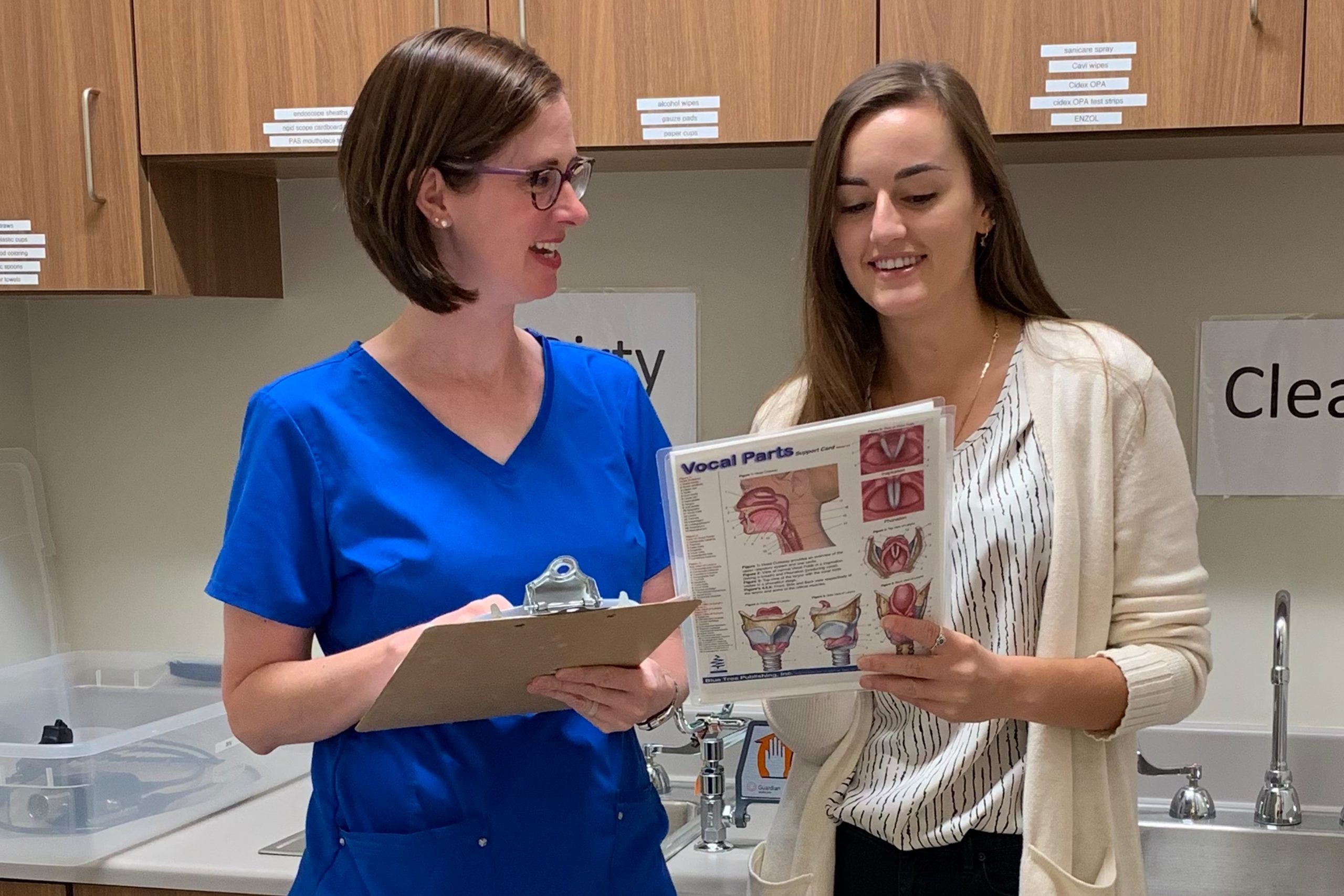As undergrads, we tend to pack our summers with résumé-strengthening activities for grad school applications—camp counseling, shadowing, and interning all appear to be advantageous. Towards the end of my junior year at Appalachian State University, I wondered, “What other opportunities could I seize this summer?”
I reached out to my neuroanatomy and physiology professor (because she captured my interest in neurological disorders) and discovered she was conducting research on how SLPs utilize online resources for dysphagia management. After discussing my career goals and the ongoing project in her lab, I was delighted when she invited me to be her undergraduate research assistant (URA) for the summer—a stipend-paid position!
My Summer Experience as a URA
Once the position was approved by the university, there were a few things I had to do before starting—gaining clearance at the hospital, updating my research ethics training, and reviewing the research study’s institutional review board protocol. Then, I was ready to go!
With my mentor’s oversight, I worked in the university’s Voice, Swallowing, and Motor Speech Lab to:
- facilitate the development of a standard operations procedure manual,
- assemble an inventory list for instrumental assessment equipment used in the lab, and
- create video tutorials to teach other students navigating the lab.
Along with my work in the lab, I had the opportunity to participate in a handful of events I wouldn’t have been able to join otherwise:
- provide a demonstration to local SLPs on how to clean endoscopes used for swallowing assessment,
- participate in a hands-on dissection of a human cadaver,
- join a monthly journal club where local clinicians review research to support evidence-based practice, and
- observe dysphagia and cognitive evaluations in the hospital’s intensive care unit.
How Being an Undergrad Researcher Impacts My Future as an SLP
At first, I was hesitant to begin my work as an undergrad researcher. It was such an important role, with so many responsibilities. There was a lot of pressure to correctly handle the expensive inventory owned by the university, to confidently represent myself at the hospital, and to participate in a high level of professional discourse with my mentor and other SLPs.
But, my confidence grew over the course of the summer. I eventually felt more inclined to take on tasks with conviction, instead of hesitation. One of the highlights of my time was creating a survey essential to my mentor’s research. Made using advanced statistics software, the survey was sent to everyone in ASHA’s SIG 13: Swallowing and Swallowing Disorders. This project required a lot of independent learning and problem solving in order to understand the ins and outs of creating a user-friendly and easily accessible survey that supported our research question.
Continuing My Role
Now, as a senior, I’ve continued my volunteer work in the lab—keeping up with the status of the research study I helped get off the ground last summer. I’ve also been lucky enough to observe a modified barium swallow study in the radiology unit at the hospital, facilitated by one of the SLPs I previously worked with—further supporting my dream of being a medical SLP specializing in neurological disorders.
This experience has also allowed me to maintain relationships with clinical supervisors. This is incredibly important because they’ll not only support research-specific tasks, but will also provide ongoing mentorship for me as I plan for grad school.
My research experience has given me the skills, confidence, and memories to help me be confident in my choice to pursue a career as a medical SLP.
Undergraduate students: Reach out to your professors and support faculty to connect with research opportunities. Doing so will forever shape the way you perceive your future career as an SLP.

